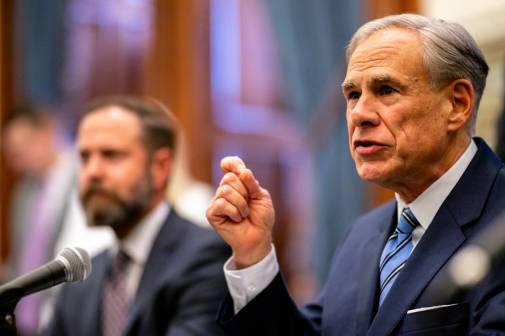San Antonio builds ‘dating website’ for university collaboration

San Antonio is enlisting the help of local university researchers to create more data-driven policy across city government, officials at the city’s Office of Innovation told StateScoop.
Earlier this month, the city signed a five-year, up to $7 million research agreement with the University of Texas at San Antonio that outlined terms and conditions for future research and technical assistance projects between the two. The agreement set the stage for fast-moving and timely collaboration going forward, said Kate Kinnison, the research and development administrator for San Antonio.
The agreement, largely modeled off of a similar document signed by the City of Austin and the University of Texas at Austin last year, “pre-establishes” the legalese that previously could hold up joint-research projects for months, Kinnison said. It also establishes a framework for both parties to keep track of all the studies and experiments they’re working on together — including evaluating police calls and response techniques, COVID-19 safety, monitoring obesity and how pre-K students are performing.
“It’s a new world now in terms of collaborating to solve major challenges. We cannot be solving these challenges in our silos any longer, but it doesn’t mean our institutions have caught up with that,” Kinnison said. “That master research agreement overcomes those hurdles and streamlines the process.”
Most of the new projects conducted under the new agreement will be studies, surveys and program evaluations that are aimed at making the city more data-driven, Kinnison said. But all city agencies — not just the Office of Innovation — are encouraged to take advantage, she said. University data scientists, sociologists, criminologists, computer scientists, engineers are among those who will soon be able to enter their biographies into a custom software platform that Kinnison likened to the dating website Match.com. She said it’s designed to match researchers and city staff together if they’re working on similar issues.
“We call it Match.com because it’s going to use some of the same technology behind the scenes, some algorithms, to help people find each other,” Kinnison said. “It’s really important that these people know each other. They’re working on the same challenges, they’re just approaching it with a completely different viewpoint and set of skills.”
Over the past two years, the city still conducted research with UTSA, even without a master research agreement, said San Antonio Chief Innovation Officer Brian Dillard, but it took months to negotiate terms and receive bids back. Prior joint-research projects that allowed agencies to collect data also rarely encouraged sharing that data with other city agencies, he said, limiting the overall benefit of the projects. Kinnison said that will no longer be the case when the new agreement goes live, which will be “any day now.”
“In the past, the results of these studies that we’ve spent money on for the past five years or whatever with UTSA, they’ve been up with individual city departments, and they’ve been individual projects,” Dillard said. “Never truly ‘City of San Antonio’ data. This master research agreement really centralizes the impact from all of these individual studies, so one department is learning from another department’s study.”






